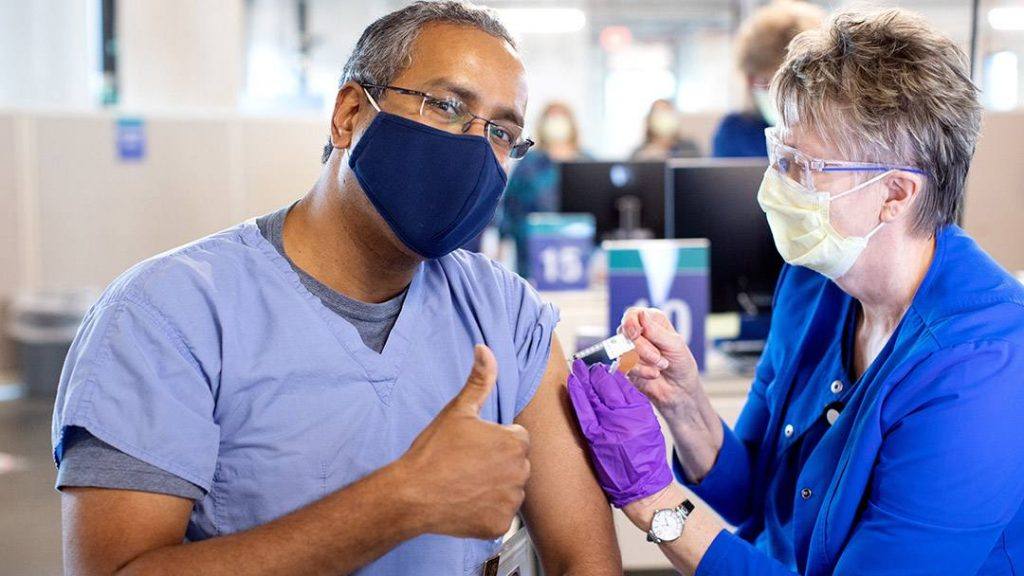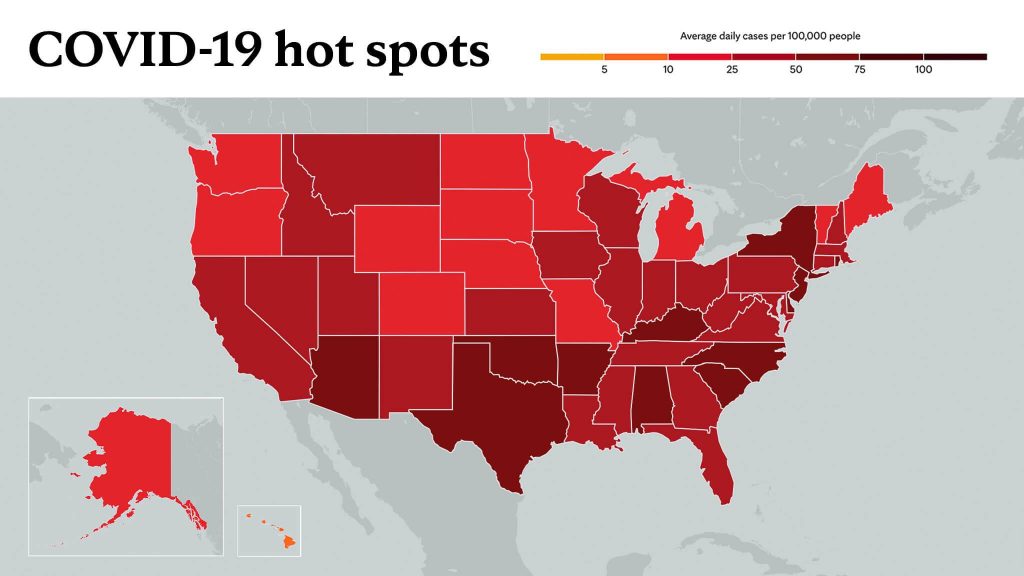
Getting a COVID-19 vaccine is an important tool, along with wearing a cloth mask, socially distancing and good hand hygiene, to help stop the ongoing pandemic. As wide-scale vaccination efforts continue, many people have questions about the vaccines. Mayo Clinic's Vaccination and Distribution Workgroup has answered some of the most common questions about COVID-19 vaccines.
If I am vaccinated and develop side effects should I get tested?
While many people do not have reactions after vaccination, it is normal if you do. It does not mean you have the COVID-19 infection. If you have a reaction, take some time to rest and allow your body to recover.
These reactions should not keep you from going to work or doing other activities. However, stay home if you have a fever. It is not necessary to have a COVID-19 test or to quarantine.
What are the side effects of the COVID-19 vaccine?
For the Pfizer/BioNTech and Moderna vaccines, you may experience some mild side effects, primarily injection site pain, fatigue, and chills. These symptoms got better without medical care, and usually within 24 to 48 hours.
Second doses of the Pfizer/BioNTech and Moderna vaccines should still be given, even if you had one of these reactions after the first dose.
Is it safe to use fever-reducing pain medications like acetaminophen before or after receiving the COVID-19 vaccine?
Whether you’re receiving your first or second dose of a COVID-19 vaccine, do not take fever reducing and pain medications such as Tylenol, Feverall and ibuprofen before being vaccinated just to prevent reactions that haven't yet happened. Doing so may dampen your immune response. If you do have a moderate headache or body ache as a reaction to being vaccinated for COVID-19, you can take such medications as needed to treat that pain.
Should I delay my COVID-19 vaccine if I am scheduled for surgery?
There is no need to postpone being vaccinated for COVID-19 until after your surgery. Any side effects, such as fever, that may occur from being vaccinated for COVID-19 the vaccine would will resolve within seven days. Most side effects resolve within three days.
Mayo does not recommend that you schedule your vaccination for COVID-19 within a few days of your surgery, especially the second dose of the Pfizer/BioNTech or Moderna vaccines for COVID-19. About 15% of people will experience a fever after the second dose of these vaccines. For the first dose, less than 1% will experience a fever.
If you check in on the day of surgery and you have a fever, you may need to reschedule your surgery. A fever immediately after surgery raises concerns about a surgical wound infection, so it's ideal if you can allow a week between being vaccinated for COVD-19 and surgery, especially for the second dose.
Can someone who is vaccinated still transmit the COVID-19 virus?
It's not yet known whether a person who is vaccinated for COVID-19 can get an asymptomatic COVID-19 infection and spread that infection to another person. Those vaccinated for COVID-19 must practice the same safety precautions as those who are not vaccinated for COVID-19, including wearing a mask, practicing social distancing and washing their hands frequently.
What is known is that COVID-19 vaccines are 95% effective in preventing symptomatic COVID-19 infection.
Were COVID-19 vaccines developed using fetal tissue?
Neither the Pfizer/BioNTech nor Moderna vaccines for COVID-19 contain fetal cells, and fetal cells were not used in their development or production.
In two animal studies, researchers performed laboratory testing of the vaccines using historically harvested fetal cell lines. However, both animal studies were conducted after these vaccines were already in phase 3 clinical trials.
Should I delay getting COVID-19 vaccine if I’ve received another type of vaccine recently?
Mayo Clinic experts suggest that you consider delaying your vaccination for COVID-19 if you've received another vaccine within the past 14 days. You also should wait a couple of weeks after being vaccinated for COVID-19 to receive a different vaccine, like the flu vaccine.
While there is no reason to believe that one vaccine will interfere with another, when COVID-19 vaccines were being studied, research volunteers did not receive vaccines at the same time or within two to four weeks of being vaccinated for COVID-19. If you have a reaction after being vaccinated, separating vaccinations helps to correctly identify which vaccine may have been responsible.
Mayo Clinic experts have no concerns with the safety or effectiveness of COVID-19 vaccines for those who choose to be vaccinated for COVID-19 despite a recent vaccination.
Information in this post was accurate at the time of its posting. Due to the fluid nature of the COVID-19 pandemic, scientific understanding, along with guidelines and recommendations, may have changed since the original publication date.
For more information and all your COVID-19 coverage, go to the Mayo Clinic News Network and mayoclinic.org.
Learn more about: tracking COVID-19 and COVID-19 trends.








